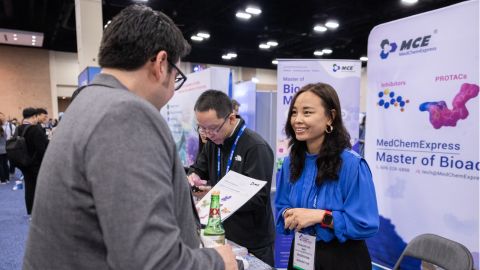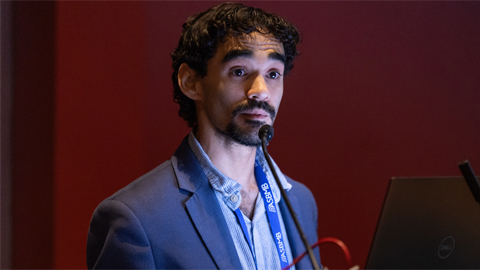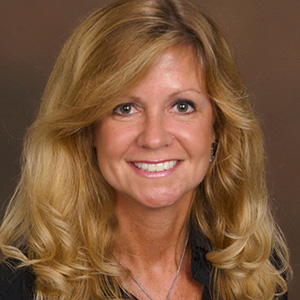A time for reflection — and data
We have reached a point in the pandemic when we can begin to reflect on how COVID-19 has changed our lives (for better or worse) and how we will adapt. Academic research has documented that women and historically marginalized groups were disproportionately affected by the pandemic. Scientists who have caregiving responsibilities (primarily women), those from marginalized/minoritized groups and early-career researchers reported increased workloads, decreased productivity and decreased mentor support.
Some researchers suggest the pandemic has served as the proverbial canary in the coal mine, highlighting and amplifying existing disparities and inequities within the science, technology, engineering, medicine and mathematics workplace. They now are assessing pandemic policies enacted in response to that disproportionate impact, and the lessons they learn could inform future strategies.

A recent study reviewed the policies and interventions some institutions used to mitigate the burden of the pandemic. These include additional institutional support, modified workloads, tenure delays and changes to promotion and tenure criteria.
Institutions viewed workload modifications as a potential solution to the pandemic-related increase in advising, teaching and mentoring activities that largely are done by women. In fact, women and underrepresented groups carried a disproportionate burden of service and committee work in academia even before the pandemic. This is well documented and was the topic of a recent book club on “The No Club: Putting a Stop to Women’s Dead-End Work” sponsored by the American Society for Biochemistry and Molecular Biology Women in Biochemistry and Molecular Biology Committee.
Women are disproportionately allocated what the book’s authors call nonpromotable tasks, or NPTs. These include mentoring students and faculty; logistical planning; training; and serving on hiring, promotion, diversity, climate, governance and review committees, to name just a few. While workload modifications were a recommended pandemic-related intervention, the authors suggest that institutions would benefit from equal distribution of these NPTs to ensure that employees can realize their full potential while also increasing the institution’s ability to attract and retain a diverse and talented workforce.
Also in response to the pandemic, some institutions have modified requirements for promotions and tenure, recognizing the potential long-term disruptions to research programs along with the increased burden of teaching and service. The authors of “The No Club” suggest that institutions should reexamine criteria for promotion, tenure and hiring with holistic assessments that include essential service and other committee work. Institutions should recognize service that is vital to their ability to function. Invisible service needs to become visible.
Be part of the conversation
Join the ASBMB Women in Biochemistry and Molecular Biology Committee for a social media chat on the long-term effects of COVID-19 on women in STEM, Friday, March 3, at 2 p.m. Eastern and for a journal club on the same topic (ASBMB members only), Thursday, March 9, 4-5 p.m. Eastern.
In addition to delays in tenure decisions, some institutions have offered post-pandemic sabbaticals (with releases from teaching and service) to allow faculty to jumpstart their research programs.
However, many well-intentioned policies may not have the intended effect. For example, a 2018 analysis showed that a policy known as tenure clock stoppage — pausing the probationary tenure period, typically for a year after the birth of a child or a serious illness — increased tenure rates for men and decreased them for women. Delaying tenure decisions could set women and underrepresented groups further back in their career progression and leadership opportunities and thus widen existing pay gaps. One recent study suggested that retroactive pay increases should accompany flexibility policies to mitigate these disparities.
While the pandemic disrupted many things, it accelerated our ability to communicate and interact remotely. Many of us would benefit from continuing to use multimodal options for meetings, conferences and professional development programs. With the platforms refined during the pandemic, people who previously were excluded from in-person activities — including those with caregiving responsibilities or disabilities — have been able to participate.
As we emerge with new information, new technologies and a heightened awareness of the disparities that contributed to the disproportionate impact of the pandemic, it is a time for reflection. My co-authors and I recently outlined approaches for supporting women in science, including enhanced flexibility options; childcare supplements; strategies for generating cultures of inclusion, action-oriented accountability to address bullying/harassment; and research interventions to develop best practices for fostering diversity, equity and inclusion in the workplace. Readers who want to see policies like these implemented should start by talking to their institution’s leaders about disparities and asking what is being done to address them.
Moving forward, longitudinal studies to track how these policies and approaches are working may shape efforts to address longstanding equity issues in STEMM. We need data-driven strategies to support and promote women and underrepresented groups, lest we lose a generation or more of scientists. It is indeed a time for careful reflection — and data.
Enjoy reading ASBMB Today?
Become a member to receive the print edition four times a year and the digital edition monthly.
Learn moreFeatured jobs
from the ASBMB career center
Get the latest from ASBMB Today
Enter your email address, and we’ll send you a weekly email with recent articles, interviews and more.
Latest in Opinions
Opinions highlights or most popular articles

Black excellence in biotech: Shaping the future of an industry
This Black History Month, we highlight the impact of DEI initiatives, trailblazing scientists and industry leaders working to create a more inclusive and scientific community. Discover how you can be part of the movement.

Attend ASBMB’s career and education fair
Attending the ASBMB career and education fair is a great way to explore new opportunities, make valuable connections and gain insights into potential career paths.

Benefits of attending a large scientific conference
Researchers have a lot of choices when it comes to conferences and symposia. A large conference like the ASBMB Annual Meeting offers myriad opportunities, such as poster sessions, top research talks, social events, workshops, vendor booths and more.

When Batman meets Poison Ivy
Jessica Desamero had learned to love science communication by the time she was challenged to explain the role of DNA secondary structure in halting cancer cell growth to an 8th-grade level audience.

The monopoly defined: Who holds the power of science communication?
“At the official competition, out of 12 presenters, only two were from R2 institutions, and the other 10 were from R1 institutions. And just two had distinguishable non-American accents.”

How I made the most of my time as an undergrad
An assistant professor of biology looks back at the many ways he prepared (or didn’t) for his future when he was in college.

